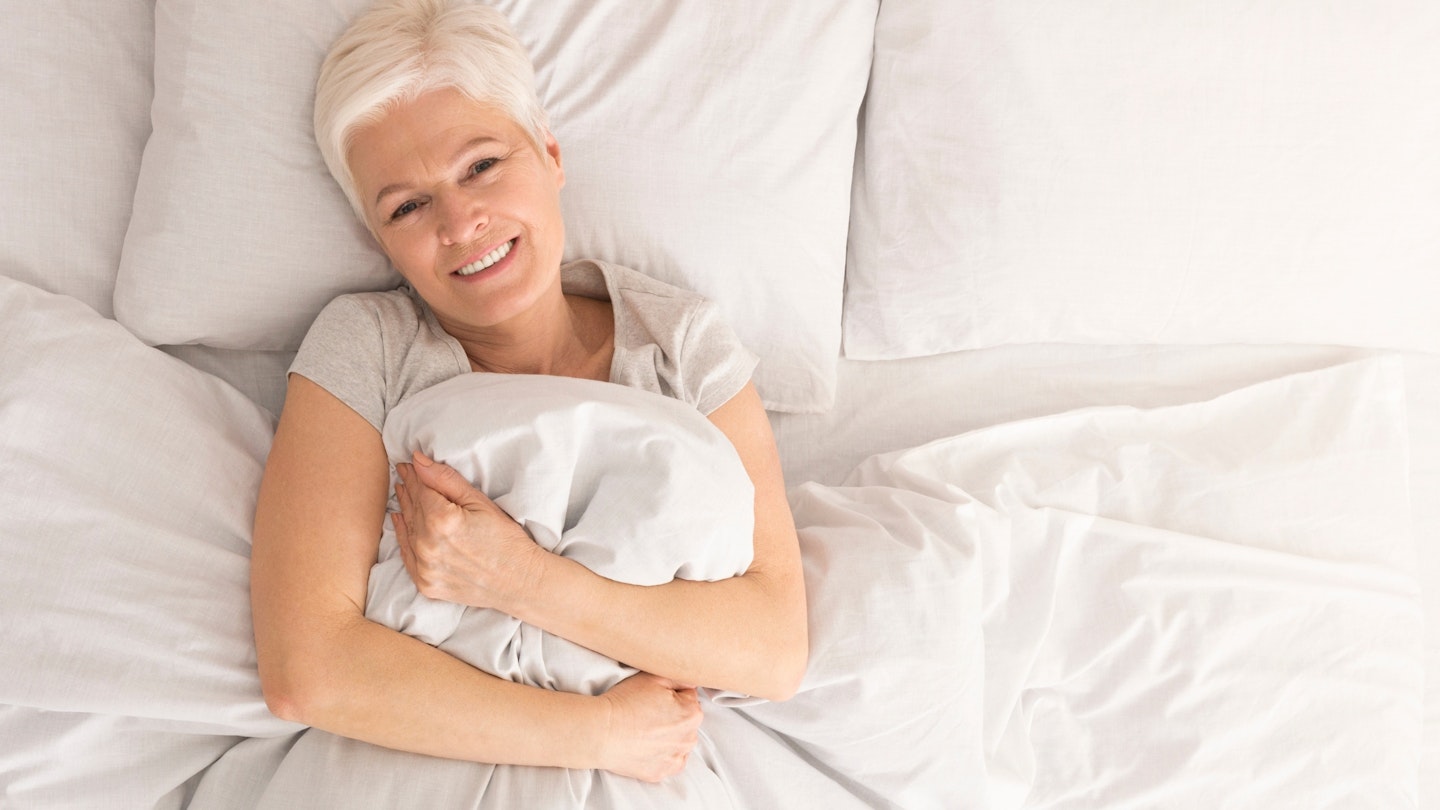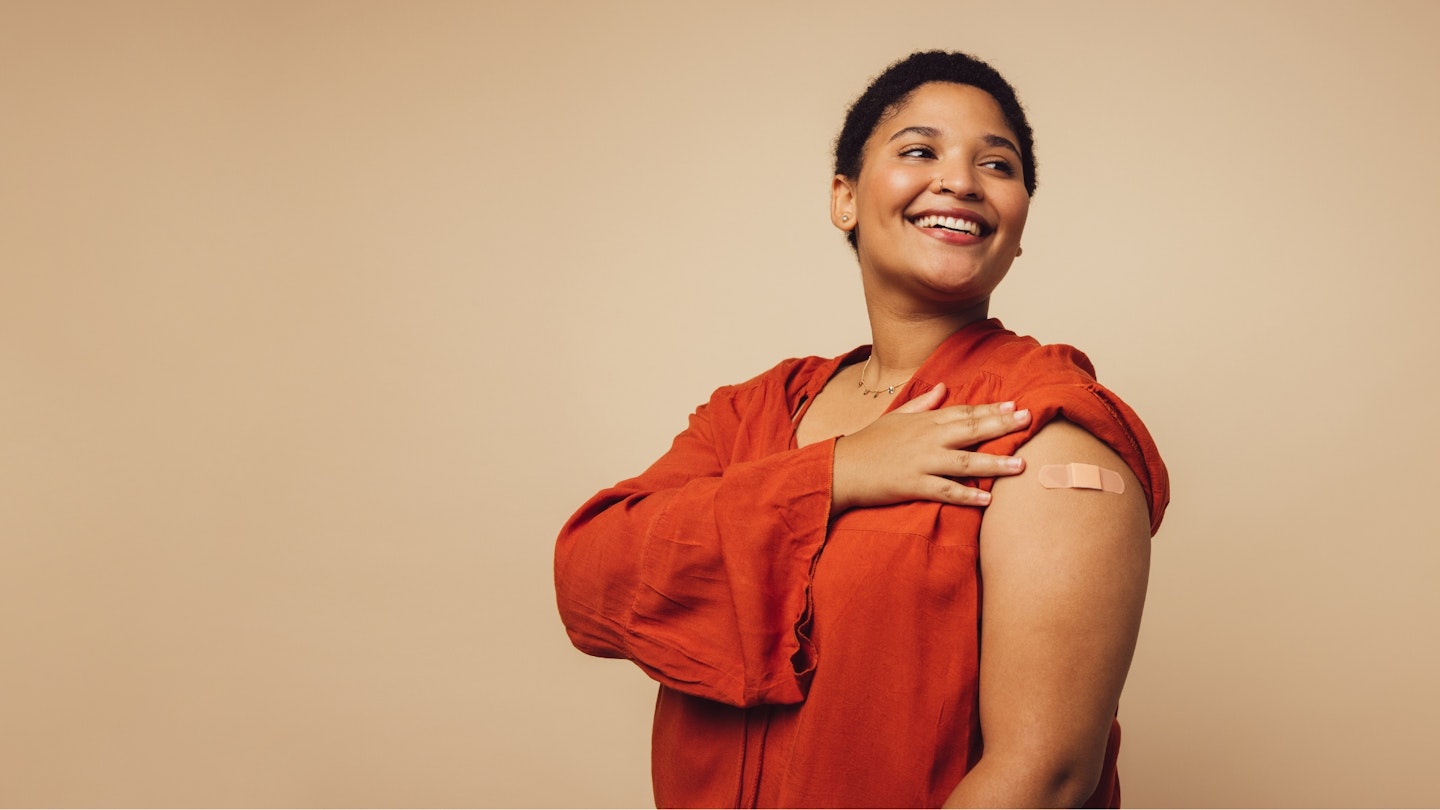We’ve all felt the dread that comes with the start of a sore throat or a winter headache. Are you just getting a cold or is this the beginning of full-blown flu?
And for many this can be very worrying.
Dr Dave Nichols, NHS GP and registered doctor at MyHealthChecked, explains, ‘While both flu and Covid normally lead to short, transient illnesses that resolve within a few days, for some, the effects can be severe and even life-threatening.
‘Unfortunately, historical data suggests that case numbers will start to rise as we head into winter, with flu cases normally peaking between December and February. This is why taking steps to prevent getting ill is so important.
‘Thankfully, for most, there are key measures you can take that will help to enhance and speed up your recovery. But prevention really is the best form of protection.’
Top tips for keeping well
Get real rest
Research suggests that poor sleep may increase your risk of severe respiratory infections, with some studies finding that those with poor sleep quality had a 16% increased risk of getting Covid.
Dr Nichols says, ‘Ensuring that you’re getting adequate rest – on average seven to nine hours of sleep per night – is key in helping to reduce your risk of becoming unwell. This is because sleep quality has been shown to be an important predictor of immunity.
‘Likewise, if you do get ill, getting good-quality sleep and rest is also vital in helping to enhance your recovery.
‘In the modern world, we’re all guilty of not resting as much as we should when ill. But the more we sleep and recharge, the more we’re helping our immune system to fight off the virus. Ideally, you’d spend the first 24-48 hours at least resting and recovering at home.
‘If you’re coughing lots at night, try taking a hot steamy shower before bed. Sitting upright, making sure your shoulders are relaxed and not hunched, can help with breathlessness.’

Maintain good hygiene
Although uncommon, you can have flu and still catch Covid at the same time.
‘It may sound obvious, but good hygiene measures are a really important way of reducing the transmission of viruses like flu and Covid, both to yourself and to others,’ explains Dr Nichols. ‘Wash your hands frequently with warm soap and water for 15 seconds, especially before preparing food and eating and try to not touch your face too much, as viruses can enter the body this way. Avoid sharing items within households, such as towels.
‘If you are poorly, keep washing your hands to stop any viruses from spreading and to protect yourself from picking up further viruses’.
Do some exercise
Dr Nichols advises that exercise can be key in preventing illnesses, ‘It has been shown to reduce the chances of people developing viral illnesses. Exercise plays an important role in boosting immunity by increasing the circulation of some important immune cells that fight against infection.
‘While I wouldn’t advise exercise when someone first becomes ill, fresh air and exercise can be beneficial in helping to get you back on your feet again once you’re feeling better. This is because having too much rest once an infection has gone can make your recovery slower – the less you use your muscles, the weaker they become.
‘Wait until your fever is gone and then you can start to exercise again if feeling up to it. If you have extreme tiredness after Covid, you may need to build up again slowly until you’re back in your old routine again.’
Eat well, feel better
Dr Nichols says, ‘Having a well-balanced diet is important for ensuring a healthy immune system, which your body needs to both protect you from infections and to fight them.
‘Try to eat at least five portions of fruit and vegetables so you’re getting enough vitamins A, C and D and increase your intake of omega-3.’ Protein is also important for cell and muscle recovery. When you have flu or Covid, it’s not unusual to lose your appetite, but eating high-protein foods can help with your energy and recovery.
‘Likewise, consider how much you’re drinking. Your body uses more energy when fighting an infection so it’s really important to increase your water intake during this period.
‘Avoid alcohol and caffeine too. Anything that dehydrates you isn’t going to help with a speedy recovery.’
Think zinc
‘Recent work suggests that probiotics and vitamin D may be helpful in preventing respiratory infections, while increasing your intake of zinc and probiotics may help aid your recovery.’
‘Zinc supplements can be picked up from your local health shop and probiotics can be found in things like yoghurt or kefir. However, zinc supplements might not be right for everyone so speak to your pharmacist or healthcare provider before taking.’
Get the flu jab
Dr Nichols points out, ‘When it comes to flu, protection is the best form of prevention. The flu jab offers protection, by priming people’s immune systems to develop antibodies to this virus which helps reduce the risk of people developing serious health complications from the illness.
‘Likewise, if you’re at increased risk from severe Covid, the Covid vaccination can be an important part of protecting yourself.
‘If you do get ill, don’t be afraid to use over-the-counter medications, which may be useful in aiding your rest and therefore recovery. Paracetamol or ibuprofen can help reduce symptoms of fever and muscle or joint aches, while nasal decongestants or sprays can be useful for those experiencing nasal symptoms.’

Keep warm
Keeping warm has been shown to help prevent colds, flu and even heart attacks, strokes and depression. During winter, try to keep at least one room in your home well-heated and wear several thin layers of clothes to trap warm air.
‘Maintaining a sensible core temperature may be helpful in preventing us from picking up viruses. This is because if you’re cold, your body has to work a bit harder and that can leave you a little more vulnerable to picking things up.
‘If you do get ill, staying warm can be helpful in recuperating as it helps the body to preserve its energy to help fight the infection.’
Dr Dave Nichols is an NHS GP and registered doctor at MyHealthChecked who provide at-home health and wellness tests.
